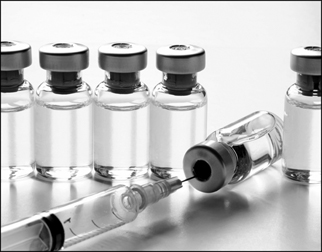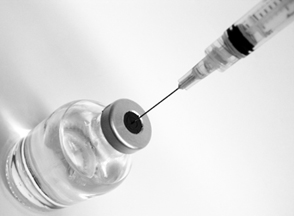|
Sri Lanka’s immunisation program best in South East
Asia :
Rubella vaccine’s safety assured
As the country’s r ubella vaccination scandal of two deaths worries
Sri Lankans on immunising their children, the country’s Epidemiology
Unit of the Family Health Bureau is working around the clock to produce
a WHO (World Health Organisation) report about the real cause of it.
 Consultant Epidemiologist at the Unit, Dr. Virginie Malawaarachchi
said, “We, at the Epidemiological Unit and the Health Ministry feel
upset over the death of 13-year old Asanthi Wasana recently but if we
don’t immunise our children, the consequences later would be deadlier”. Consultant Epidemiologist at the Unit, Dr. Virginie Malawaarachchi
said, “We, at the Epidemiological Unit and the Health Ministry feel
upset over the death of 13-year old Asanthi Wasana recently but if we
don’t immunise our children, the consequences later would be deadlier”.
The Epidemiology Unit’s Immunisation handbook mentions that vaccines
used in the national immunisation programs are extremely safe and
effective. But no vaccine is perfectly safe and adverse events can occur
following immunisation. In addition to the vaccines themselves, the
process of immunisation is a potential source of adverse events. An
adverse event following immunisation (AEFI) is any adverse event that is
believed to be caused by immunisation.
“In the case of 12-year old Peshala Hansini who died on March 19, she
had a severe case of anaphylaxis,” said Dr. Malawaarachchi.
The emphasis should be placed on the fact that Cognitive Rubella is
very severe and it is imperative that we prevent it with the simple
vaccination. Congenital rubella syndrome (CRS) can occur in a developing
foetus of a pregnant woman who has contracted rubella during her first
trimester.
Infection
If infection occurs 0-28 days before conception, there is a 43 per
cent chance the infant will be affected. If the infection occurs 0-12
weeks after conception, there is a 51 per cent chance the infant will be
affected.
The classic triad for congenital rubella syndrome is Sensorineural
deafness - (58 per cent of patients), Eye abnormalities - especially
cataract and microphthalmia (43% of patients) and Congenital heart
disease - especially patent ductus arteriosus (50% of patients). Other
manifestations of CRS may include spleen, liver or bone marrow problems
(some of which may disappear shortly after birth), mental retardation,
small head size (microcephaly), eye defects, low birth weight,
thrombocytopenia purpura (presents as a characteristic blueberry muffin
rash), hepatomegaly and micrognathia.
Children who have been exposed to rubella in the womb should also be
watched closely as they age for any indication of developmental delay,
schizophrenia, growth retardation, learning disabilities, diabetes and
glaucoma.
“We have a good policy to immunise children which is why our infant
mortality rate is 11 per cent for every 1000 live births” said the
doctor. However, when Sri Lankan medical experts thought that there were
side effects with the DPT-HBV-HIB (Pentavalent vaccine), it was stopped.
“After a thorough investigation by two international groups on the Hib
vaccination, we discovered that there was no link to long-term side
effects but it would have been a natural reaction to the drug,” said Dr.
Malawaarachchi.
Health and Nutrition Minister Nimal Siripala de Silva has said Sri
Lanka should not give up rubella vaccination, part of the National
Immunisation Programme, just because two children died from the more
than one million who had been already vaccinated this year. The WHO has
informed that no death has been reported in any other country through
rubella vaccination.
Health funds
 Without a good immunisation program, the incidence of diseases would
be high which would severely affect the national health sector. “Not
only the people who have sick children will suffer but health funds will
have to provide treatment which would have been easy to prevent with
immunisation” said Dr. Malawaarachchi. In any event, the Health Ministry
always takes the blame. “The problem is that people think about the
negative aspects so much that this blinds them to the positive reality,”
said the doctor. The Consultant Epidemiologist said minor cases are
sensationalised when the positive results are basically unheard of. Without a good immunisation program, the incidence of diseases would
be high which would severely affect the national health sector. “Not
only the people who have sick children will suffer but health funds will
have to provide treatment which would have been easy to prevent with
immunisation” said Dr. Malawaarachchi. In any event, the Health Ministry
always takes the blame. “The problem is that people think about the
negative aspects so much that this blinds them to the positive reality,”
said the doctor. The Consultant Epidemiologist said minor cases are
sensationalised when the positive results are basically unheard of.
“In the past, we have been successful in eradicating diseases like
polio, pertussis, neonatal tetanus, diphtheria, measles and tetanus”
said Dr. Malawaraachchi. As a result of successful immunisation programs
in Sri Lanka, the last case of polio was recorded in 1993. Diphtheria no
longer existed after 1985. By 2004, nearly 100 per cent of all pregnant
women were immunized against neonatal tetanus as in the case of tetanus
where hardly any case surfaced recently.
Further the doctor commented, “In making sure other countries follow
the policy, the polio eradication year was extended from 2000 to 2005
but there are cases even today in Afghanistan and some African
countries”.
However, people should realise that despite allegations, we should
not hold back the Immunisation Program, otherwise it will be too late to
save the many who might suffer as a result.
The investigation done by the National Advisory Committee on Adverse
Events Following Immunisation is due soon and then only will we know the
actual reason why Asanthi died.
-ND
History of Immunisation in Sri Lanka
Vaccination against smallpox
1949: BCG vaccination for adults
1961: Introduction of “Triple” vaccine
1962: Introduction of Oral Polio Vaccine
1963: BCG vaccination for newborns
1969: Tetanus Toxoid for pregnant mothers
1978: Launching of the EPI
1984: Introduction of Measles vaccine
1989: Achievement of UCI status
1991: Introduction of TT 5 dose schedule for pregnant
mothers
1995: Launching of NIDs to eradicate polio
1996: Introduction of Rubella vaccine
2000: NIDs to SNIDs
2001: Introduction to new immunization schedule
2003: Introduction of HBV
2008: Introduction of Hib Pentavalent Vaccine
(Courtesy : Sri Lanka Epidemiological Unit)
|

